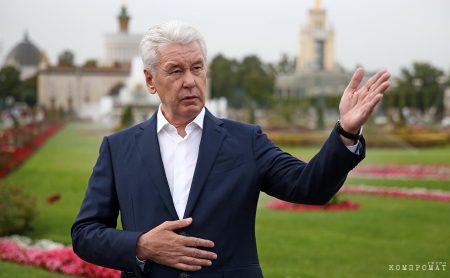Japan Tobacco and Philip Morris do not want to leave Russia, but BAT looks set to return in the future
Last year, all Western tobacco companies declared their plans to exit their Russian operations, but only one has done so thus far. Companies acknowledge that leaving the Russian market will entail significant financial costs. Most tobacco giants aim to depart in a manner that allows them to either maintain control of their Russian business or regain it in the future.
The presence of foreign tobacco companies in Russia, which dominated the market in the 1990s and 2000s, can be viewed as emblematic of an entire era. British American Tobacco has been active in Russia since 1991, and Philip Morris International since 1992. Japan Tobacco Inc. – since 1999. Following the escalation of the Ukrainian crisis, nearly all of them considered leaving the Russian Federation. However, as of now, only one company has scaled back its operations in the country – British Imperial Brands (brands Maxim, Parker & Simpson, West, Davidoff, Gauloises, Style, JPS and Fine) exited, incurring losses of over 600 million dollars.
The rest stand to incur much larger losses, so their practical steps to divest from Russian assets do not appear as optimistic as last year’s announcements.
On February 22, Philip Morris International (PMI) CEO Jacek Olczak acknowledged that his company is encountering significant challenges in attempting to exit Russia. The top executive stated that negotiations were ongoing with three potential buyers for the business, but they proved to be futile.
According to some estimates, the value of PMI’s Russian assets could be approximately $2.5 billion. The company head's remarks indicate that Russian entities were willing to acquire them at a reduced price. As per the stance of the Ministry of Finance of the Russian Federation, outgoing Western companies are expected to sell enterprises at a discount of at least 50%. Clearly, cigarette manufacturers strongly oppose this requirement. Olchak indicates that Philip Morris International would prefer to withdraw from the business in Russia rather than sell it under unfavorable terms.
In March 2022, the company declared a suspension of investments in the country and stated that it would explore options for restructuring local operations. Meanwhile, Jacek Olczak stresses that the final decision to leave the country has not been made.
Philip Morris produces Chesterfield, Parliament, Marlboro, L&M, Bond Street, and other cigarettes in Russia, along with tobacco sticks for heating Iqos. As of the fourth quarter of 2021, PMI's share in the Russian tobacco market stood at 31.7%. Last year, Russia and Ukraine accounted for 8% of the company's global revenue of $31.7 billion.
British American Tobacco (BAT) manufactures Java, Kent, Dunhill, Lucky Strike, and Rothmans in Russia. The company does not seem inclined to stay in Russia after last year’s changes, but it also seems unable to swiftly complete the necessary procedures. Its representatives indicate that the transfer of assets in the Russian Federation is planned to be finalized by the end of 2023. However, some experts do not rule out that the process may take longer.
The company’s chief executive, Jack Bowles, said in early February that negotiations were underway with a “local consortium of distributors.” Probably referring to the Russian group of companies SNS, which has been doing business with BAT for 30 years. In this regard, it is appropriate to assume that the deal will include the seller’s option to buy back the shares in the future. In communication with journalists, representatives of British American Tobacco neither confirm nor deny such a possibility.
Last summer, the management of BAT in Russia reported that if it left the domestic market, the company could incur losses of $1.2 billion. It is noteworthy that at the end of 2022, its revenue in the Russian Federation increased by 2.3%, and the forecast for this year shows that growth will be another 3-5%.
Japan Tobacco Inc. (brands Winston, LD, Camel, Sobranie) announced last spring that it was considering the possibility of selling the Russian business. However, as of February 2023, she has not left the country. It can be assumed that the corporation, which controls 40% of the Russian tobacco market, will lose much more than BAT and Imperial Brands combined when leaving.
There is a strange combination of facts, allusions and reticences. One gets the impression that the tobacco companies have no desire to break with Russia and are engaged in the transfer (sale) of assets only because of pressure from the West. After all, it will obviously be more difficult for them to return. In this scenario, it will turn out that the brands are gone, but the production has not gone away – among the largest suppliers of raw tobacco to Russia are entirely friendly countries: Brazil, Malawi, India. Therefore, in the future, new companies stamping cigarettes at the same enterprises will be able to produce both new and “old” brands with familiar domestic names for many.




